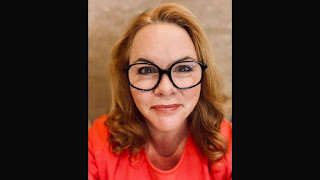The Drive for Transparency and Good Governance
During my 6 years, or two terms as Vice-Chancellor at the PNG University of Technology (UNITECH), I had the privilege of serving its wonderful students, working with seven Ministers of Higher Education, and four Chancellors. This experience provided me with unique insights into the challenges and opportunities facing higher education in Papua New Guinea.
From 2012 to 2015, UNITECH students led a commendable drive for transparency and good governance. Sir Nagora Bogan, the second Chancellor I worked with, was known for his pragmatism and kindness. He strategically built coalitions based on politicians' desire to maintain power, while allowing me to engineer the removal of the worst offenders from the previous administration.
 |
Uni-city Master Plan
|
The Student Representative Council (SRC) was the principal driver of change. The principled stance of SRC Presidents like Eddy Nagual and Joe Kaowai made it clear that students desired a well-governed, rule-based institution where academic freedom and institutional independence were honored.
Whither UNITECH?
The recent passing of Sir Nagora gives us pause for reflection. My tenure primarily focused on ensuring UNITECH programs complied with international standards, university infrastructure was upgraded to provide essential conditions for a positive learning environment, and securing ongoing support from stakeholders inside the country and abroad. As part of this process, the university became the first one in the country to actively participate in the European Union's Erasmus programs, which opened opportunities for students, as well as recruitment of lecturers abroad. It also became the first university in the world to have independent high speed internet access through the O3B satellite systems.
Just before leaving, the university received a clean financial audit, and we were on track to achieve accreditation for one engineering program in 2019, but unfortunately, again political considerations took precedence over educational quality and student experience. Two significant challenges emerged after my return from exile in Australia in 2014:
1) Political interference led to increased tensions between regional groups, resulting in tragic incidents of violence.
2) Pressure to ignore institutional autonomy intensified, particularly in the lead-up to the APEC summit. As a result, two foreign Vice-Chancellor, who were seen as too independently minded, were pushed out.
These two issues impeded any progress from about 2016 until today.
The Need for Consistent Leadership
The ambivalence in leadership must stop if PNG is to progress. The only job of the chair of the board (Chancellor) is to assure the strategic direction is set, and support the CEO (Vice-Chancellor) in taking the necessary measures. His or her job is not to take over executive functions, believing they are the only ones mandated by the government to rule the university.
Wantokism (tribalism) needs to make way for meritocracy, and successful, ethical leaders should be supported rather than becoming victims of slanderous attacks. It is crucial to build rule-based, well-governed, and inclusive organizations that meet the reasonable expectations of citizens and students.
While sceptics say things will never change in PNG, I believe transformation is possible when the logic of criminal gangs is replaced by the rule of law and meritocracy. Sir Nagora, despite moments of generosity and attempts at change, struggled to fully embrace this vision, as reflected in lack of support for Sir Nagora by his own the people of Butibam and Busamang. Ironically, the populations of these villages strongly urged the government to support me until the end of my mandate, to no avail.
Sir Nagora was by far the best of a bad lot. His successor Chancellor Kekedo, was an overall embarrassment, and her lack of university education was a real impediment for her effectiveness. She is mainly known for politicizing and torpedoing the university's campus development plan, which would have generated other sources of revenue. Oddly she had been pro-chancellor during the two years in which the university council developed this plan, but turned against it when she tried unsuccessfully to push for a leading role for her own people.
She was succeeded by Chancellor Koim, who as chair of UDC had failed to deal with the financial mismanagement. As head of anti-corruption task force sweep he failed to indict a member of the notoriously corrupt O'Neill government, and more recently he single-handedly caused looting in the capital when he failed to pay the police their allowances and then lied about it. He eagerly participated in the political with hunt against me, encouraging the spread of slanderous lies in my regard.
In the end, the only charge that was made was that I did not hold a doctorate, a claim that had already been refuted by the 2018 Sevua Investigation. Inevitably, all these silly allegations were thrown out by the courts.
Looking Forward
It is somewhat encouraging to see that the current leadership team I worked to train has renewed itself and begun to find its voice, although they are largely continuing initiatives that I started. There is still no firm grasp of the idea that the only standards that matter are international standards, and that support from foreign stakeholders is essential to carry the university to the next level. They remain unresponsive and incapable of driving the necessary changes. As a result, there is still not a single engineering program that has received accreditation.
The path forward for UNITECH and higher education in PNG requires unwavering commitment to good governance, academic excellence, and institutional integrity. Almost a decade has been lost in political squabbling and infighting. As we reflect on the past and look to the future, let us remember that progress is possible, but it requires dedication, courage, and a steadfast commitment to ethical leadership and educational quality.





















